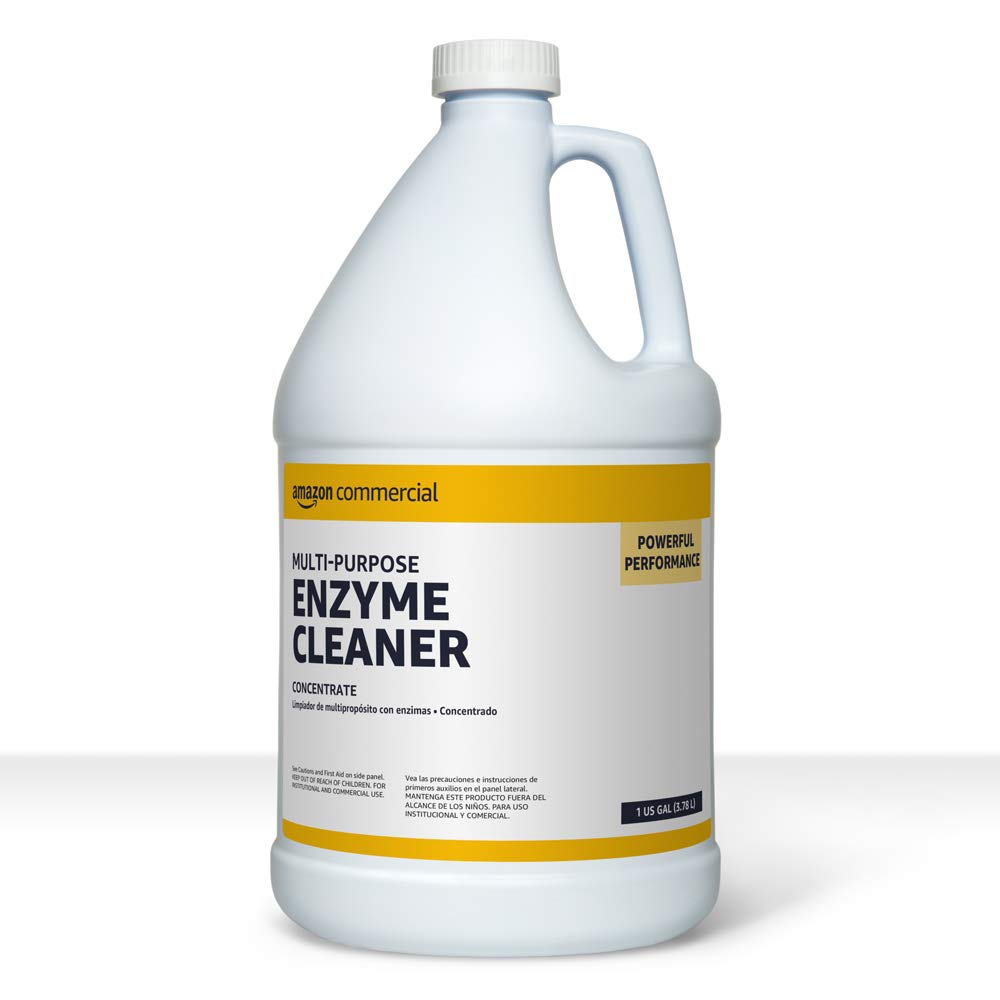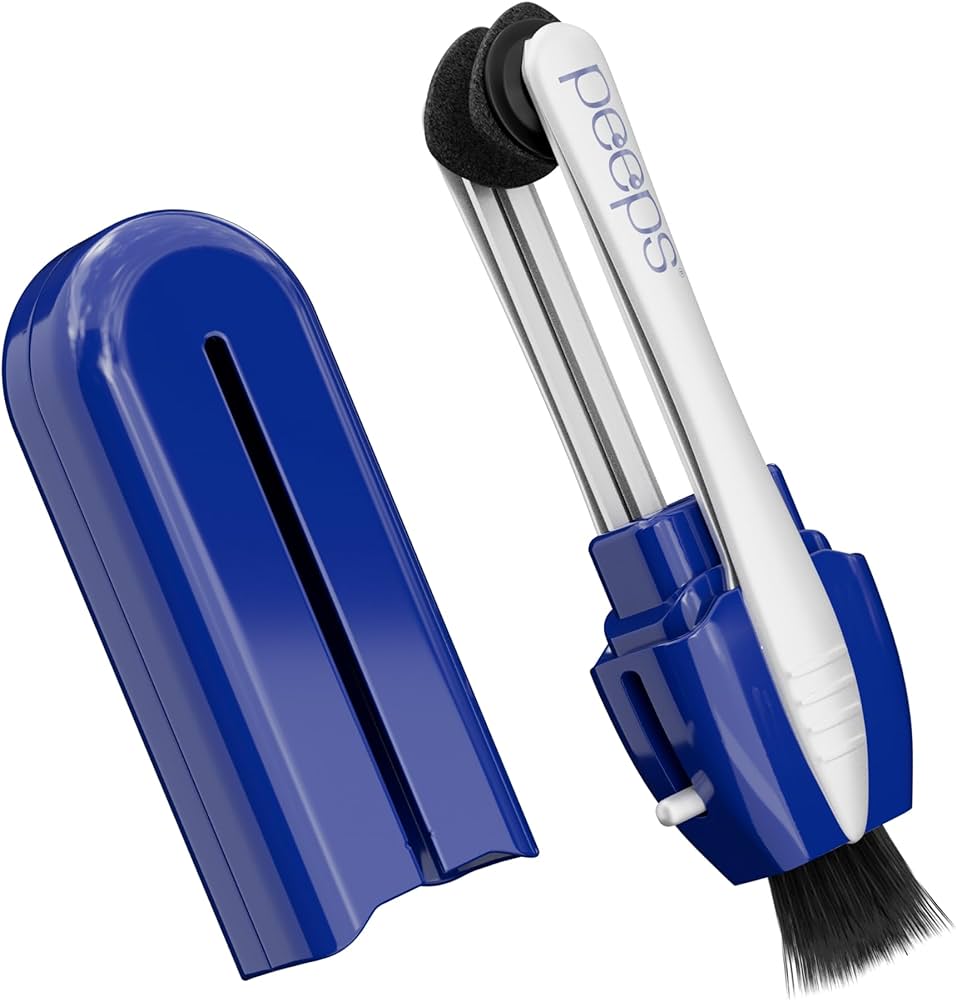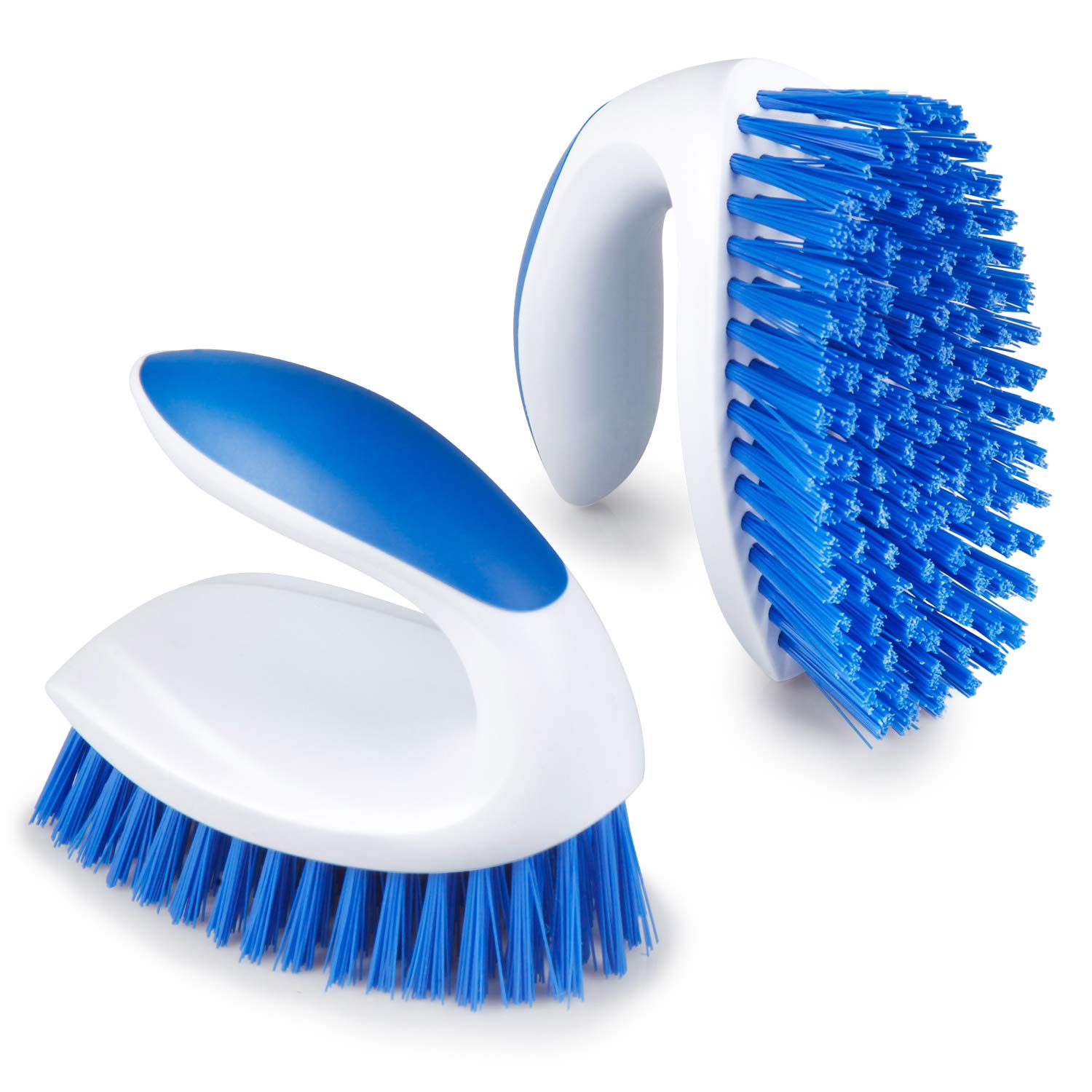Enzyme cleaners use natural enzymes to break down stains and odors. They are eco-friendly and effective for various cleaning tasks.
Enzyme cleaners stand out in the cleaning industry for their natural and efficient approach. Unlike chemical-based cleaners, enzyme cleaners utilize biological enzymes to target and dismantle organic stains and odors. This makes them safe for both the environment and your home.
Ideal for pet stains, food spills, and other organic messes, enzyme cleaners offer a powerful and eco-friendly solution. They work by breaking down the molecules in stains, ensuring thorough and effective cleaning. Easy to use and versatile, these cleaners are suitable for various surfaces, providing a reliable option for maintaining a clean and fresh environment.

Credit: superiorproducts.com
Introduction To Enzyme Cleaners
Enzyme cleaners are a popular choice for eco-friendly cleaning. They use natural enzymes to break down stains and odors. This makes them safe and effective for many surfaces.
Why Choose Enzyme Cleaners?
There are many reasons to choose enzyme cleaners over traditional ones. Here are some benefits:
- Eco-Friendly: Enzyme cleaners are biodegradable and safe for the environment.
- Non-Toxic: They are safe to use around children and pets.
- Effective: Enzymes break down organic matter, eliminating stains and odors.
- Versatile: Suitable for various surfaces like carpets, fabrics, and hard floors.
The Science Behind Enzyme Cleaners
Enzymes are proteins that speed up chemical reactions. In enzyme cleaners, they target specific molecules.
Here are common enzymes found in cleaners:
| Enzyme Type | Target Substance |
|---|---|
| Protease | Breaks down proteins (e.g., blood, food stains) |
| Amylase | Breaks down starches (e.g., sauces, syrups) |
| Lipase | Breaks down fats and oils |
| Cellulase | Breaks down cellulose (e.g., plant material) |
These enzymes work together to tackle different types of stains and messes. Their natural action makes cleaning efficient and safe.

Credit: hellonest.co
Types Of Enzyme Cleaners
Enzyme cleaners are powerful solutions. They break down stains and odors. Different enzyme cleaners serve various needs. Let’s explore the main types of enzyme cleaners.
For Household Use
Household enzyme cleaners are versatile. They tackle common home messes. Here are some popular types:
- Pet Stain Removers: These target pet urine and feces. They remove smells and stains.
- Laundry Enzyme Cleaners: These help in removing tough stains. They work on blood, grease, and food spills.
- Kitchen Cleaners: These break down food residue. They are great for countertops and sinks.
- Bathroom Cleaners: These tackle soap scum and mildew. They keep your bathroom fresh and clean.
For Industrial Applications
Industrial enzyme cleaners are more potent. They handle tougher stains and larger areas. Common types include:
- Grease Trap Cleaners: These break down fats, oils, and grease. Ideal for restaurants and food industries.
- Carpet Cleaners: These remove deep stains and odors. Perfect for large commercial spaces.
- Septic Tank Cleaners: These maintain septic systems. They break down waste and prevent clogs.
- Industrial Waste Cleaners: These handle hazardous spills. They keep industrial spaces safe and clean.
Choosing the right enzyme cleaner is essential. It ensures effective cleaning and maintenance. Select one based on your specific needs.
Benefits Of Using Enzyme Cleaners
Enzyme cleaners are gaining popularity due to their natural cleaning power. These cleaners use enzymes to break down stains and odors at a molecular level. They offer a range of benefits that make them a must-have in every home. Let’s explore some of the key benefits of using enzyme cleaners.
Eco-friendly Cleaning Solution
Enzyme cleaners are an eco-friendly cleaning solution. They contain natural enzymes that break down organic matter.
These enzymes are biodegradable and non-toxic. This makes them safe for the environment. Unlike chemical cleaners, enzyme cleaners do not release harmful fumes or residues.
Using enzyme cleaners helps reduce your carbon footprint. You will also help protect our planet for future generations.
Safe Around Children And Pets
Enzyme cleaners are safe around children and pets. They do not contain harsh chemicals.
This ensures that your home remains a safe space. These cleaners are gentle yet effective.
Here are some benefits of using enzyme cleaners around kids and pets:
- No harmful fumes
- No skin irritants
- No toxic residues
With enzyme cleaners, you can clean with peace of mind. Your loved ones will stay safe and healthy.
Effective Use Of Enzyme Cleaners
Enzyme cleaners are powerful tools for maintaining cleanliness. They are effective and eco-friendly. Knowing how to use them properly ensures maximum benefit. This section provides guidelines on the effective use of enzyme cleaners.
Preparation And Application
Proper preparation is key to using enzyme cleaners effectively. Follow these steps:
- Read the product label carefully.
- Wear gloves to protect your hands.
- Test the cleaner on a small area first.
- Mix the cleaner according to instructions.
Application is straightforward. Apply the cleaner directly to the stain or area. Let it sit for the recommended time. Wipe or scrub the area gently with a cloth or brush. Rinse with water if needed.
Dos And Don’ts
| Dos | Don’ts |
|---|---|
|
|
Using enzyme cleaners correctly ensures they work effectively. Follow the guidelines above for best results.
Comparing Enzyme Cleaners With Chemical Cleaners
Cleaning products come in various forms. Two popular types are enzyme cleaners and chemical cleaners. Each has its own strengths and weaknesses. Here, we compare them in two key areas: efficiency in cleaning and their impact on the environment.
Efficiency In Cleaning
Enzyme cleaners use natural enzymes to break down stains. These enzymes target specific types of stains, like proteins or fats. This makes them highly effective for certain messes. They work well on organic stains such as food, blood, and urine.
Chemical cleaners rely on synthetic chemicals to clean. They often use strong acids or bases. These chemicals can quickly remove a wide range of stains. They are versatile and can clean many surfaces effectively.
| Cleaner Type | Strengths | Weaknesses |
|---|---|---|
| Enzyme Cleaners | Effective on organic stains | May take longer to work |
| Chemical Cleaners | Quick action | Can be harsh on surfaces |
Impact On The Environment
Enzyme cleaners are usually biodegradable. They break down naturally. This makes them environmentally friendly. They are safe for septic systems and do not pollute water sources.
Chemical cleaners can be harmful to the environment. Many contain toxic substances. These can pollute water and soil. They are often not biodegradable. This leads to long-term environmental damage.
- Enzyme cleaners: Biodegradable and safe for the environment
- Chemical cleaners: Often toxic and non-biodegradable
Choosing between enzyme and chemical cleaners depends on your needs. For eco-friendly options, enzyme cleaners are the best. For quick and versatile cleaning, chemical cleaners may be more suitable.
Diy Enzyme Cleaner Recipes
Enzyme cleaners are great for tackling tough stains and odors naturally. Making your own enzyme cleaner at home is both cost-effective and eco-friendly. Here, we will guide you through some simple DIY enzyme cleaner recipes.
Simple Kitchen Ingredients
Creating enzyme cleaners at home is easy with everyday kitchen items. Here are some common ingredients you will need:
- Citrus Peels: Orange, lemon, or lime peels work best.
- Brown Sugar: Helps feed the bacteria needed for enzyme production.
- Water: Used as the base for the cleaner.
- Yeast: Speeds up the fermentation process.
Steps To Create Your Own
Follow these simple steps to create your own enzyme cleaner:
- Collect citrus peels and chop them into small pieces.
- In a large bottle, add 1 cup of brown sugar.
- Pour in 4 cups of water.
- Add the chopped citrus peels to the bottle.
- Add a teaspoon of yeast to speed up fermentation.
- Close the bottle tightly and shake it well.
- Store the bottle in a dark place for 2 weeks.
- Shake the bottle every day to mix ingredients.
- After 2 weeks, strain the liquid into a spray bottle.
- Your enzyme cleaner is ready to use!
Here is a quick reference table:
| Ingredient | Quantity |
|---|---|
| Citrus Peels | 2 cups |
| Brown Sugar | 1 cup |
| Water | 4 cups |
| Yeast | 1 teaspoon |
Using enzyme cleaners is a great way to keep your home clean and fresh. These natural cleaners are safe for pets and children.
Troubleshooting Common Issues
Enzyme cleaners are powerful tools for tackling various stains and odors. Sometimes, you might face issues while using them. This section will guide you through common problems and provide effective solutions.
Dealing With Stubborn Stains
Enzyme cleaners can handle most stains, but some may persist. Here are steps to help:
- Pre-treat the stain: Apply the cleaner directly to the stain. Let it sit for 15 minutes.
- Use a brush: Gently scrub the stain with a soft brush.
- Repeat if needed: Sometimes, stains need multiple treatments.
If the stain remains, consider these tips:
- Check the fabric: Some materials need special care.
- Increase enzyme cleaner strength: Dilute less for stronger action.
- Test on a small area: Ensure no damage to the surface.
Storage And Shelf Life
Proper storage ensures the enzyme cleaner works effectively. Follow these tips:
| Storage Tip | Details |
|---|---|
| Keep cool: | Store in a cool, dry place. Avoid direct sunlight. |
| Seal tightly: | Ensure the cap is tightly sealed after use. |
| Avoid contamination: | Do not mix with other chemicals. |
The shelf life of an enzyme cleaner is important. Here’s what you need to know:
- Check expiration date: Most enzyme cleaners last 12-24 months.
- Observe changes: If the liquid changes color or smell, discard it.
- Store properly: Improper storage can reduce shelf life.
Following these tips ensures your enzyme cleaner remains effective and safe to use.
Future Of Cleaning: The Role Of Enzyme Cleaners
The future of cleaning is evolving with enzyme cleaners. These natural, bio-based cleaners offer a safer and more effective solution. Traditional chemical cleaners are harsh and harmful. Enzyme cleaners are gentle and eco-friendly. They break down organic matter, leaving surfaces spotless.
Innovations In Enzyme Technology
Recent advances in enzyme technology have revolutionized cleaning products. Scientists are developing specialized enzymes for different cleaning tasks. These innovations include:
- Proteases: Break down protein-based stains.
- Lipases: Target and dissolve fats and oils.
- Amylases: Remove starch-based residues.
New enzyme formulations enhance cleaning efficiency. These products are safe for pets and children. They also reduce the environmental impact.
Expanding Applications Beyond Cleaning
Enzyme technology is not limited to cleaning. Its applications are expanding to other areas:
| Application | Benefits |
|---|---|
| Textile Industry | Enzymes help in fabric care and stain removal. |
| Agriculture | Enzymes improve soil health and crop yield. |
| Waste Management | Enzymes aid in organic waste decomposition. |
These expanding uses highlight the versatility of enzyme technology. The future holds endless possibilities for enzyme cleaners.

Credit: www.amazon.com
Frequently Asked Questions
What Is An Enzyme Cleaner?
An enzyme cleaner uses natural enzymes to break down stains, odors, and organic materials. It’s eco-friendly and effective.
Is Vinegar An Enzyme Cleaner?
Vinegar is not an enzyme cleaner. It is an acidic solution made from fermented ethanol, effective for cleaning and deodorizing.
What Would Be An Enzyme Cleaner?
An enzyme cleaner uses natural enzymes to break down stains, odors, and grime. It’s eco-friendly and safe for various surfaces.
Is Oxiclean An Enzyme Cleaner?
No, OxiClean is not an enzyme cleaner. It uses sodium percarbonate to release oxygen for cleaning and stain removal.
Conclusion
Choosing an enzyme cleaner can revolutionize your cleaning routine. These eco-friendly solutions break down stains and odors effectively. They are safe for both your home and the environment. Make the switch today and experience a cleaner, healthier space. Discover the power of enzyme cleaners and see the difference for yourself.




